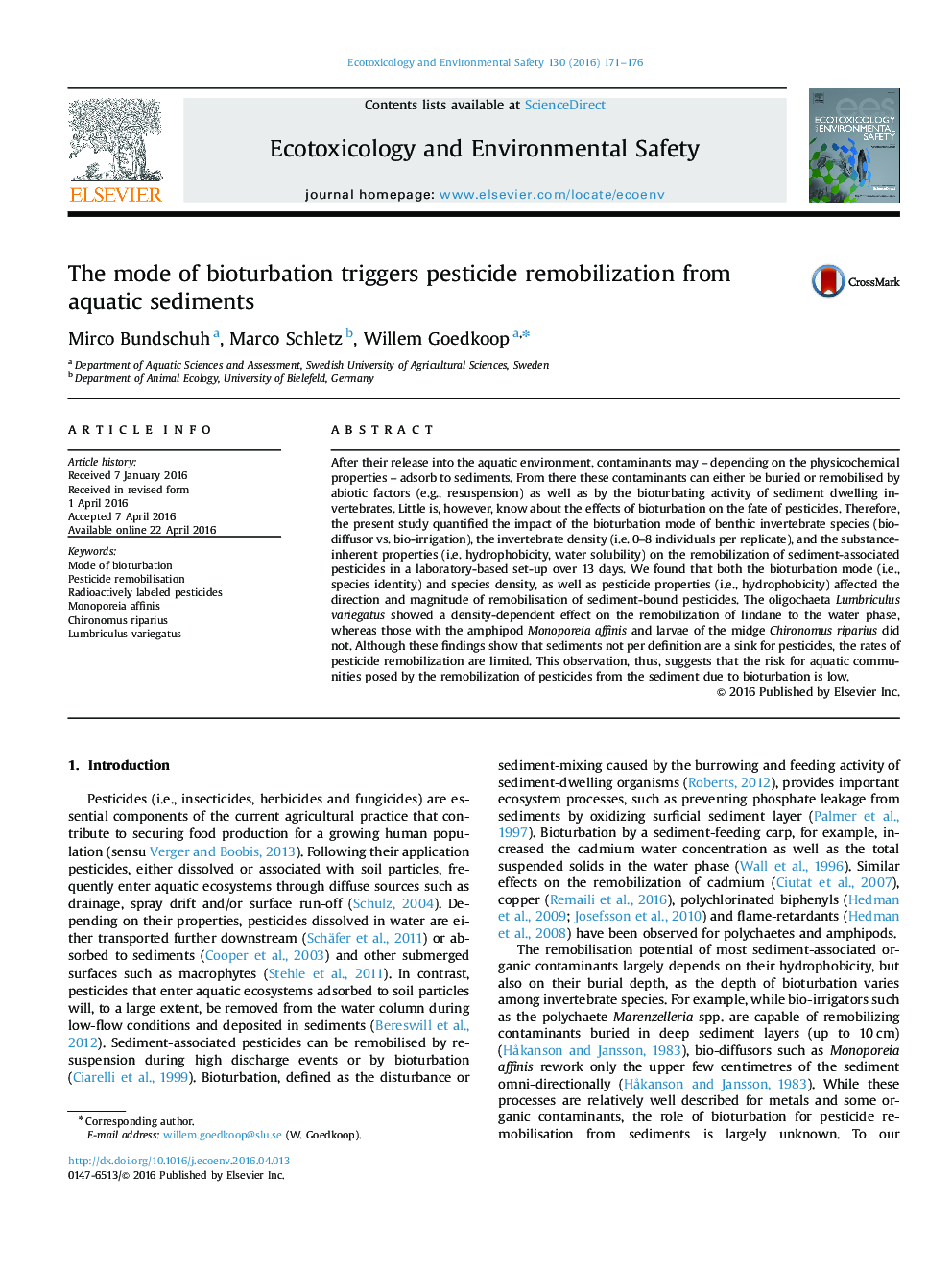| کد مقاله | کد نشریه | سال انتشار | مقاله انگلیسی | نسخه تمام متن |
|---|---|---|---|---|
| 4419183 | 1618933 | 2016 | 6 صفحه PDF | دانلود رایگان |
• Sediment-bound pesticides can be remobilised by bioturbation.
• The mode of bioturbation and species density determine remobilization efficiency.
• Physicochemical properties of the pesticide influence remobilisation.
• Quantity of remobilization is likely too low to cause adverse effects in the field.
After their release into the aquatic environment, contaminants may – depending on the physicochemical properties – adsorb to sediments. From there these contaminants can either be buried or remobilised by abiotic factors (e.g., resuspension) as well as by the bioturbating activity of sediment dwelling invertebrates. Little is, however, know about the effects of bioturbation on the fate of pesticides. Therefore, the present study quantified the impact of the bioturbation mode of benthic invertebrate species (bio-diffusor vs. bio-irrigation), the invertebrate density (i.e. 0–8 individuals per replicate), and the substance-inherent properties (i.e. hydrophobicity, water solubility) on the remobilization of sediment-associated pesticides in a laboratory-based set-up over 13 days. We found that both the bioturbation mode (i.e., species identity) and species density, as well as pesticide properties (i.e., hydrophobicity) affected the direction and magnitude of remobilisation of sediment-bound pesticides. The oligochaeta Lumbriculus variegatus showed a density-dependent effect on the remobilization of lindane to the water phase, whereas those with the amphipod Monoporeia affinis and larvae of the midge Chironomus riparius did not. Although these findings show that sediments not per definition are a sink for pesticides, the rates of pesticide remobilization are limited. This observation, thus, suggests that the risk for aquatic communities posed by the remobilization of pesticides from the sediment due to bioturbation is low.
Journal: Ecotoxicology and Environmental Safety - Volume 130, August 2016, Pages 171–176
